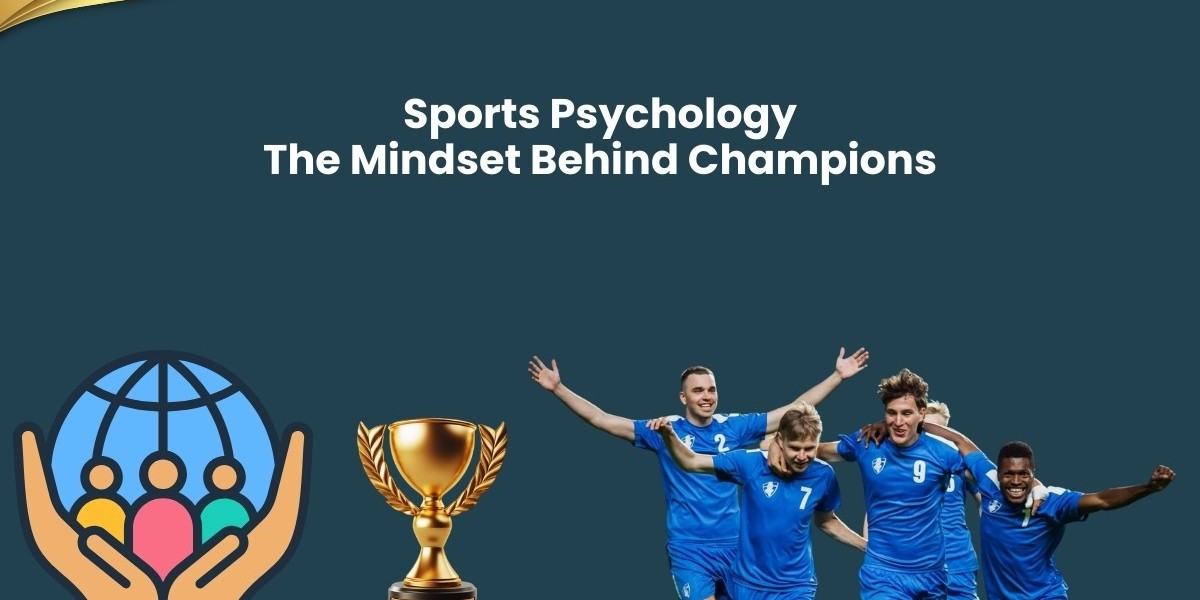Sports psychology has become a vital part of modern training. It helps athletes build focus, overcome stress, and maintain confidence in the toughest moments. At Playinmatch Official, we recognize that success in sports is not only about strength and skill but also about mindset.
This blog explores how sports psychology works, why it matters, and the mindset behind champions.
What Is Sports Psychology?
Sports psychology is the study of how mental factors influence performance in sports and physical activity. It focuses on:
Motivation
Concentration
Confidence
Stress management
Emotional control
It also deals with the challenges athletes face off the field, such as anxiety, fear of failure, or burnout.
By applying psychological strategies, athletes can train their minds the same way they train their bodies.
Why Mindset Matters in Sports
In elite competitions, the difference between first and second place can be milliseconds. At that level, physical abilities are nearly equal. What makes the difference is mental strength.
Athletes with the right mindset can:
Stay calm under pressure.
Recover quickly from mistakes.
Focus on the process rather than the outcome.
Push beyond limits when fatigue sets in.
This mental toughness is what makes legends. From Serena Williams to Lionel Messi, champions consistently display extraordinary focus and resilience.
Key Elements of a Champion’s Mindset
1. Confidence
Confidence allows athletes to believe in their abilities. Without it, even the most skilled player may fail under pressure. Sports psychology uses visualization, self-talk, and goal setting to boost confidence.
2. Focus
Distractions are everywhere in sports: the crowd, the scoreboard, the opponent’s moves. Champions learn to block out noise and focus only on their performance. Techniques like mindfulness and concentration drills help athletes maintain sharp focus.
3. Resilience
Defeat is part of every sport. Champions know how to bounce back. Resilience means learning from mistakes, adjusting strategies, and staying motivated after setbacks.
4. Emotional Control
Athletes often face stress and anxiety before or during competition. Sports psychology teaches breathing exercises, relaxation techniques, and mental conditioning to control emotions.
5. Motivation
Long training hours and sacrifices can drain energy. Motivation keeps athletes committed. Whether it comes from personal goals, team spirit, or external rewards, motivation fuels consistency.
The Role of Visualization
Visualization is one of the most powerful tools in sports psychology. Athletes mentally rehearse their performance, imagining every detail — from their movements to the atmosphere in the stadium.
Studies show that visualization activates the same brain areas as physical practice. This helps athletes build muscle memory, improve confidence, and prepare for real scenarios.
For example, Olympic swimmers often visualize each stroke before stepping into the pool. Tennis players mentally rehearse serves and returns. These mental exercises enhance readiness and performance.
Coping With Pressure
Pressure is inevitable in competitive sports. The higher the stakes, the greater the mental challenge. Sports psychologists help athletes manage pressure through:
Breathing techniques to reduce anxiety.
Pre-performance routines to create stability.
Cognitive reframing to turn pressure into excitement.
Champions learn to see pressure as an opportunity, not a threat. This shift in perspective allows them to deliver their best under intense conditions.
Overcoming Mental Barriers
Many athletes struggle with mental barriers like fear of failure, low confidence, or perfectionism. Sports psychology addresses these issues by:
Breaking down big goals into smaller, achievable steps.
Teaching positive self-talk to replace negative thoughts.
Encouraging athletes to focus on growth, not perfection.
Overcoming these barriers is crucial for long-term success.
Famous Examples of Sports Psychology in Action
Michael Jordan often used visualization to prepare for crucial games.
Novak Djokovic practices mindfulness and breathing techniques to stay calm during long matches.
Simone Biles, the gymnast, has openly spoken about mental health and the importance of sports psychology in maintaining balance.
These examples show that even the most physically gifted athletes rely heavily on mental conditioning.
Sports Psychology Beyond Professionals
Sports psychology is not limited to elite athletes. Amateur players, fitness enthusiasts, and even students can benefit. The techniques used to build focus, motivation, and confidence can be applied to everyday challenges.
At Playinmatch Official, we encourage athletes and fans alike to understand the mental side of sports. Whether you’re competing at a local level or following your favorite teams, mindset plays a huge role in performance and enjoyment.
The Connection Between Sports Psychology and Fan Engagement
While sports psychology directly benefits athletes, it also shapes how fans experience sports. Athletes who show resilience and composure inspire millions. Fans admire their ability to stay focused under pressure, which makes competitions more thrilling.
This is why platforms like Playinmatch Official emphasize not only betting and fan engagement but also education on the psychology of sports. Understanding what goes on in the athlete’s mind deepens appreciation for every match.
Training the Mind: Techniques Athletes Use
Here are some common sports psychology techniques:
Goal setting: Breaking objectives into short-term and long-term goals.
Visualization: Imagining successful performance before competition.
Mindfulness: Staying present and avoiding distractions.
Routine building: Creating rituals before games for consistency.
Self-talk: Using positive words to boost confidence.
These techniques are as important as physical drills. Together, they create a complete athlete.
Challenges in Sports Psychology
Even though it has gained recognition, sports psychology still faces challenges:
Stigma: Some athletes hesitate to seek psychological help.
Access: Not every team has access to qualified sports psychologists.
Balancing expectations: Athletes often feel pressure from fans, sponsors, and the media, which makes mental preparation more difficult.
Overcoming these challenges requires greater awareness and investment in mental health resources.
The Future of Sports Psychology
Sports psychology will continue to grow in importance. With more research and technology, mental training will become as advanced as physical training.
Future trends include:
AI-driven performance analysis.
Virtual reality for visualization training.
Wider access to sports psychologists for youth and amateur athletes.
Greater focus on mental health alongside performance.
As the field evolves, champions of tomorrow will be those who combine physical skill with mental mastery.
Final Thoughts
The mindset behind champions is built on confidence, focus, resilience, and motivation. Sports psychology provides the tools athletes need to master these qualities. From visualization to mindfulness, mental strategies are now as essential as physical drills.
At Playinmatch Official, we believe that the future of sports lies in balancing both body and mind. Understanding the psychology of champions not only helps athletes but also inspires fans across the world.
The next time you watch a game, remember: the real battle is often fought in the mind.








